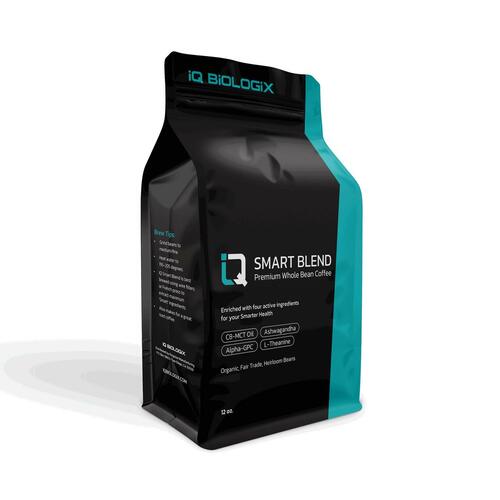Coffee, one of the world’s most beloved beverages, offers more than just a comforting warmth and an energizing caffeine kick.
Increasingly, scientific research has begun to uncover the health benefits associated with coffee consumption, particularly due to its rich content of polyphenols like chlorogenic acid (CGA), which reduce inflammation and help prevent cardiovascular diseases and cancer.
As The Epoch Times’ Amber Young reports, Dr. Chang Chin-Chien, a renowned Taiwanese breast cancer specialist and author of “A Cup of Coffee Fights All Diseases,” outlined the health benefits of coffee and shared the best ways to drink it.
Coffee improves or fights the following 11 conditions.
1. Type 2 Diabetes
Research has found a strong correlation between habitual coffee consumption and a lower risk of Type 2 diabetes. Researchers explain that regularly drinking coffee can help protect liver and beta-cell function during the chronic metabolic stress phase that occurs before the onset of overt diabetes, thereby lowering the risk of developing it.
2. High Blood Pressure
Dr. Chang noted that initially, drinking coffee may lead to higher blood pressure. However, with habitual consumption, it can actually lower it.
A meta-analysis published in 2023 involving 25 studies with 463,973 participants found a negative association between coffee consumption and the risk of high blood pressure. One of the studies indicated that nonsmoking men and women who drank three to four cups of coffee per day had a lower risk of developing high blood pressure, while no significant association was found among smokers.
3. Cardiovascular Diseases
Coffee is beneficial for cardiovascular health. A study published in the European Journal of Preventive Cardiology conducted a 12 1/2-year follow-up on 449,563 participants with a median age of 58. The results showed that compared to noncoffee drinkers, individuals who consumed ground, instant, or decaffeinated coffee had a reduced risk of cardiovascular events and all-cause mortality, with the greatest effects seen in those who drank two to three cups of coffee per day. Additionally, the researchers found that both ground coffee and instant coffee were associated with a reduced risk of arrhythmias, while decaffeinated coffee showed no such association.
4. Periodontal Disease
Chronic inflammation of the periodontal tissues can lead to gum recession, alveolar bone loss and, eventually, tooth loss. A systematic review highlighted that daily coffee consumption may help prevent alveolar bone loss. Coffee contains various components with antioxidant and anti-inflammatory properties, including caffeine, chlorogenic acid, and caffeic acid. Furthermore, chlorogenic acid acts as an antimicrobial agent, which plays a role in combating periodontal disease. However, some studies have indicated a negative correlation between coffee consumption and periodontal health.
The researchers concluded that because of coffee’s complex composition, regularly drinking an appropriate amount may benefit periodontal health. However, excessive consumption may have a negative impact. The study suggested a daily coffee intake of two to five cups is considered safe.
5. Gout
Coffee can help alleviate gout caused by excessive uric acid. A systematic review found that coffee significantly reduces serum uric acid levels. Specifically, men must drink one to three cups of coffee daily, while women require four to six cups daily to achieve this reduction. The review suggests that moderate coffee consumption could serve as a primary prevention strategy for hyperuricemia and gout in both men and women.
6. Metabolic Diseases
The caffeine in coffee can stimulate metabolism. One study showed that caffeine can counteract the detrimental effects of inflammation and oxidative stress, potentially lowering the risk of various metabolic diseases. Additionally, caffeine intake through coffee benefits metabolism, cognitive function, physical performance, and hormone regulation.
7. Obesity
A study in Nutrients indicates that the bioactive compounds in coffee, such as caffeine, chlorogenic acid, trigonelline, and magnesium, exhibit anti-obesity effects. The researchers noted that drinking coffee can help reduce obesity, particularly for men. However, while coffee can help with weight management, it isn’t as crucial as a balanced diet and physical activity. Given coffee’s protective effects against chronic diseases, the researchers recommend including it as part of a healthy lifestyle to promote overall well-being.
8. Skin Conditions
While some people believe that coffee acts as a diuretic and excessive consumption may lead to drier skin, Dr. Chang suggests that the antioxidants in coffee promote microcirculation in the skin, benefiting skin health.
A study published in May analyzed the potential causal relationship between beverage consumption and facial skin aging. The results showed that higher coffee intake can reduce the risk of this type of aging. Another study showed that caffeine protects the skin from aging induced by oxidative stress by activating autophagy (cell turnover), demonstrating the potential of caffeine in preventing skin diseases.
9. Hair Loss
A review of studies found that caffeine can stimulate hair growth in male pattern baldness, potentially aiding in hair loss treatment. It may also help prevent the risks of rosacea and both nonmelanoma and melanoma skin cancers.
10. Neurological Disorders
Dr. Chang noted that while coffee provides some benefits for neurological conditions such as dementia, Alzheimer’s disease, and Parkinson’s disease, he remains cautious about its efficacy in treating depression. However, he highlighted that some analyses suggest coffee consumption can enhance beneficial gut bacteria, which may affect the brain through the gut-brain axis, alleviating anxiety and depression.
According to a study involving more than 145,000 participants, those who consumed two to three cups of ground coffee, milk-coffee, or unsweetened coffee per day had the lowest risk of developing mental disorders such as depression and anxiety.
11. Cancer
Dr. Chang also highlighted the benefits of coffee consumption for specific cancer conditions, including liver, colorectal, oral, and certain types of breast cancers, as well as adult leukemia.
A meta-analysis published in the BMJ showed that high coffee consumption was associated with an 18 percent reduction in cancer risk compared to low coffee consumption. Additionally, drinking coffee was linked to a lower risk of several specific cancers, as well as neurological, metabolic, and liver diseases. The researchers concluded that drinking three to four cups of coffee daily can maximize the reduction of various health risks and that the health benefits likely outweigh the harm.
Optimal Ways to Drink Coffee
People have long advocated drinking black coffee. However, a 2023 study found that when caffeic acid and chlorogenic acid in coffee form adducts with cysteine, an amino acid found in milk, their anti-inflammatory activity is greatly enhanced. This suggests that combining coffee with milk can significantly boost its anti-inflammatory effects.
Dr. Chang stated that adding milk to coffee not only supplements calcium but also enhances its anti-inflammatory effects. The polyphenols in coffee form complexes with the milk, making compounds more effective at reducing inflammation than black coffee alone.
Regardless, Dr. Chang still recommends black coffee as the preferred option, but he believes it is worthwhile to experiment with adding cinnamon, lemon, oats, or other ingredients to enhance both the flavor and enjoyment of coffee.
As for the best time to drink coffee? Dr. Chang recommends having it at 10 a.m. and during afternoon tea. Consuming coffee immediately after waking up for an energy boost is unnecessary. Instead, drinking coffee around 10 a.m. after working for some time and feeling drowsy can help enhance alertness. For those with a faster metabolism, drinking coffee at 3 or 4 p.m. is fine, as it shouldn’t affect nighttime sleep.
The European Food Safety Authority stated that a daily intake of 400 milligrams of caffeine does not pose a safety concern for healthy adults, excluding pregnant women. Similarly, the U.S. Food and Drug Administration highlighted that consuming 400 milligrams of caffeine per day (equivalent to four to five cups of coffee) generally does not cause dangerous adverse effects in healthy adults. However, it is essential to note that people may vary greatly in their sensitivity to caffeine and how quickly they metabolize it.
Dr. Chang recommends drinking three 3.38-fluid-ounce cups (a little less than half a cup) of coffee daily, each containing about 60 to 200 milligrams of caffeine.
He stated that professor Hsiu-Hsi Chen’s research team from the College of Public Health at National Taiwan University conducted a follow-up study involving more than 150,000 adults. The results revealed that those who drank coffee lived approximately 2.1 years longer than those who didn’t. Additionally, the coffee-drinking group had lower incidences of diabetes, high blood pressure, metabolic syndrome, and colorectal cancer.
In conclusion, coffee’s health benefits, especially through its polyphenols like CGA, are substantial, supporting heart health, metabolic regulation, and antioxidant defense.
Daily moderate coffee consumption reduces the risk of cardiovascular diseases and cancer-related mortality, combats depression and anxiety, and aids the body in resisting COVID-19 infection, studies have found.
However, these benefits can vary based on the coffee type, preparation method, and individual health conditions.

Enjoying coffee in moderation can thus be seen as part of a healthy lifestyle, offering more than just a moment of enjoyment but also a cup of health benefits.
Loading…
Originally Posted at; https://www.zerohedge.com//



